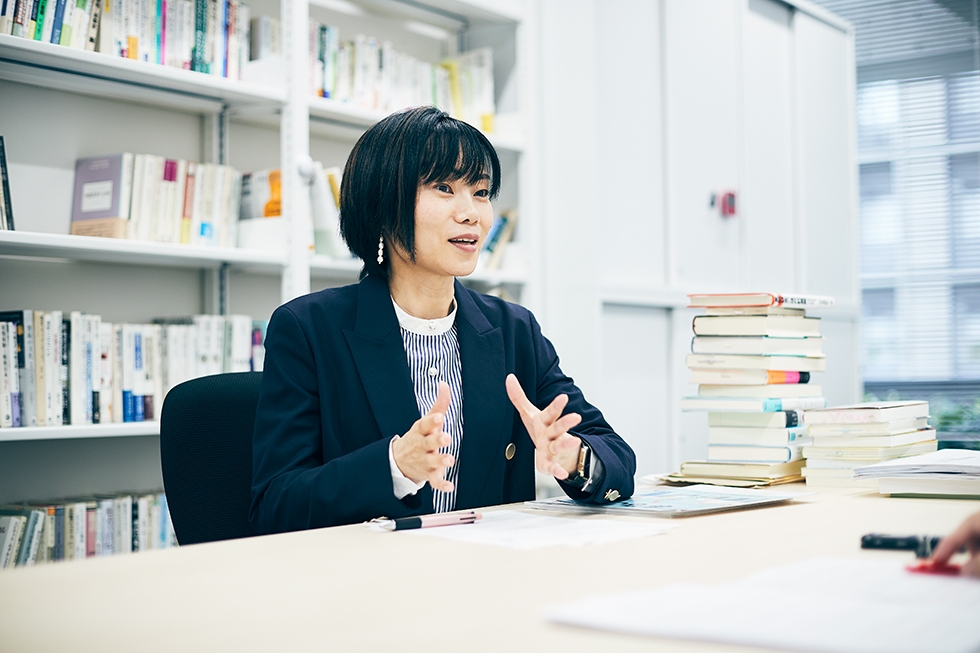I teach the “Gender Theory” course, which is a general liberal arts subject. In this course we look at the systems which make up society, in particular, the family, educational and market systems, and explore how gender (the social phenomena of gender) is constructed within each and how the gender constructed within each of these systems are interconnected. The course also explores how gender functions not just in these public systems but within the context of daily life, such as love and sexual behavior, as well. In my lectures, I seek to dispel individual preconceptions by providing numerical data and various materials which present society as it actually is. For example, in education, there are constructed gender roles even in schools where, at first glance, males and females seem to be treated equally, and a variety of data shows that this contributes to girls disliking science and to the gender disparity in the higher education enrollment rate. With regard to the market, we investigate why there is a pay gap between men and women by focusing on such factors as how companies stereotype and discriminate, intentionally or unintentionally, against women and how labor is divided according to gender roles. I also emphasize discussion among class participants in order to get them thinking about how people with backgrounds and values different to their own perceive society.

When an issue arises which involves gender, no matter how personal it may appear, it is important to utilize “sociological imagination” in order to perceive it in relation to the social structure. I believe this helps us to avoid blaming ourselves unnecessarily as well as blaming others for what is our own responsibility. In particular, I want male students to be aware of the superior position and privilege which they have by being part of the majority group in society and to understand the social structures from which this position and privilege derive. This is because gender equality cannot be achieved unless change comes from the majority. I believe that, as more people become aware of those issues which are hard to see or which tend to be ignored, people will take action to address them and society will change. The world is becoming overly specialized, and this makes us stop questioning those things that we take for granted in our areas of specialization. However, specialized perspectives and methods are insufficient on their own to understand the lives and thinking of everyday people, which are the focus of science and technology. Thus, having the ability to think relatively about specialized knowledge itself and being willing to try and understand others whose realities differ from one’s own will contribute to students’ future professional competence as scientists and engineers working in diverse environments.

■ Main courses and research area